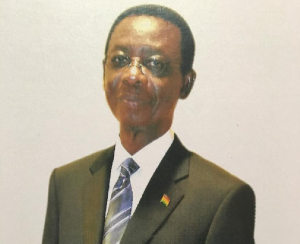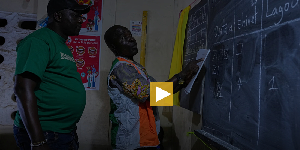THOUGH GHANA'S economy may not appear to be severely affected by the global downturn because its cocoa and gold pricescontinue to remain strong; its balance of payments is said to be in a bad state.
This situation, according to an International Monetary Fund (IMF) Staff Mission which was in Ghana recently, has emerged as a result of the deterioration in official access to global market financing, a reversal of some portfolio capital inflows and a decline in remittance earnings as well as foreign direct investment.
The mission was in Ghana from May 11- 22, to hold the annual Article IV consultations with Government and discuss the latter’s request for IMF financing in support of its economic adjustment and structural reforms.
Led by Peter Allum, it said the foregoing situation has contributed to pressures on the local currency, which depreciated by 30 percent against the US dollar during 2008, and by a further 10 percent through mid-May 2009.
'This has added to the inflationary pressures from strong domestic demand growth in 2008. Year-on-year consumer price index  inflation remained in the 20 percent range in April, though it is projected to slow as demand pressures ease through 2009.'
The mission also cited the main policy challenge currently as the budget deficit which rose to more than 14 percent of gross domestic product in 2008 on the wings of strong growth in capital spending, wage and salary costs as well as energy-related subsidies. However, it mentioned that the 2009 Budget's goal of reducing fiscal deficit to 9.4 percent of GDP 'is within reach'.
Adding that a significant further fiscal consolidation was needed to achieve the goal of reducing the fiscal deficit to 6 percent of GDP in 2010, the mission urged Government to consider all available options for the 2010 Budget both on the revenue and expenditure side, in order to achieve its goal.
With tighter monetary conditions and slower overall credit expansion than a year ago, annual growth in private credit expansion is projected to slow to single digit rates, adjusted for inflation, down from more than 20 percent annually in recent years.
Although banking sector indicators remain generally favourable, slowing credit growth and currency depreciation pose important risks, and banking supervision will need to be vigilant.
The mission further directed that to support Ghana's fiscal stabilisation goals, a number of structural reforms are necessary. This is because revenue administration is hampered by a broad range of tax exemptions and by the lack of a unified income tax as well as value-added authority.
Furthermore, expenditure monitoring and control has not taken full advantage of computerization. Government was therefore urged to move ahead vigorously with its reform plans especially in the area of cost recovery pricing for petroleum products and utilities to avoid heavy subsidy costs, adding that “reforms are needed to improve the affordability and service standards of the public service.â€
By Samuel Boadi
Opinions of Sunday, 7 June 2009
Columnist: Boadi, Samuel














